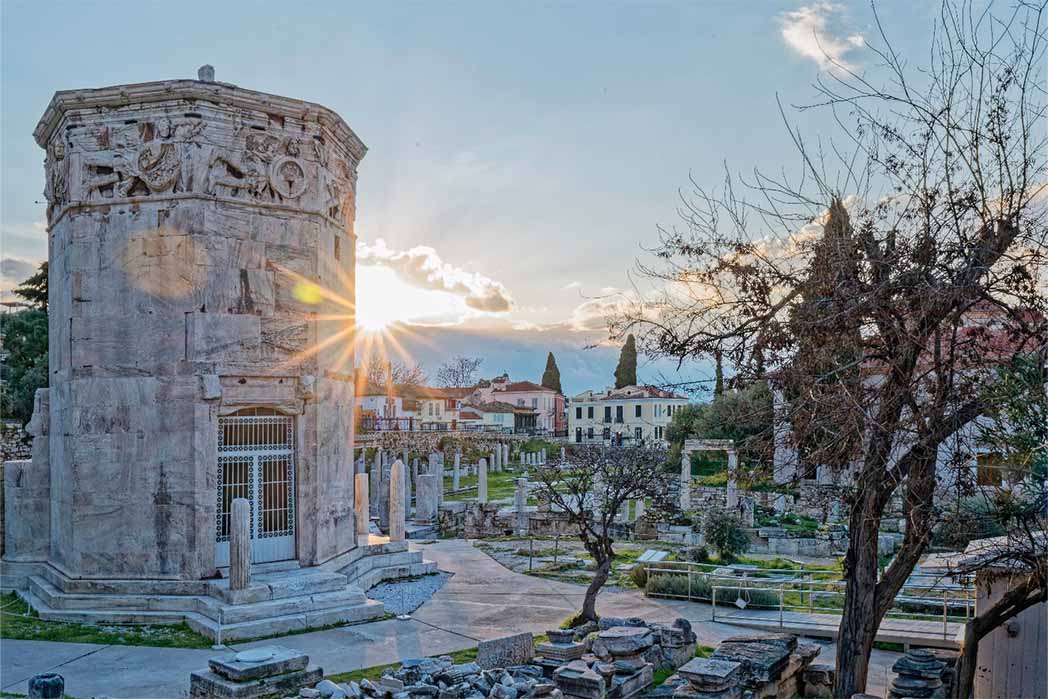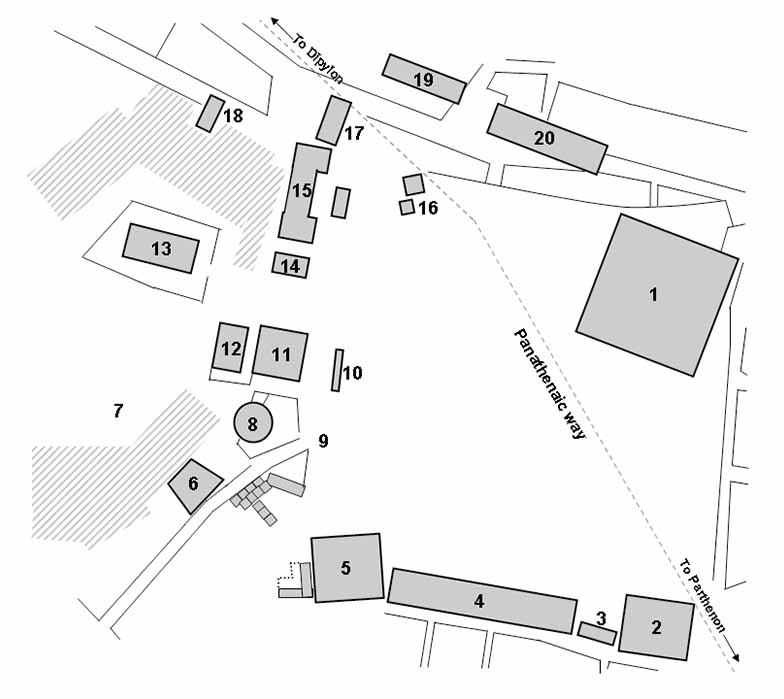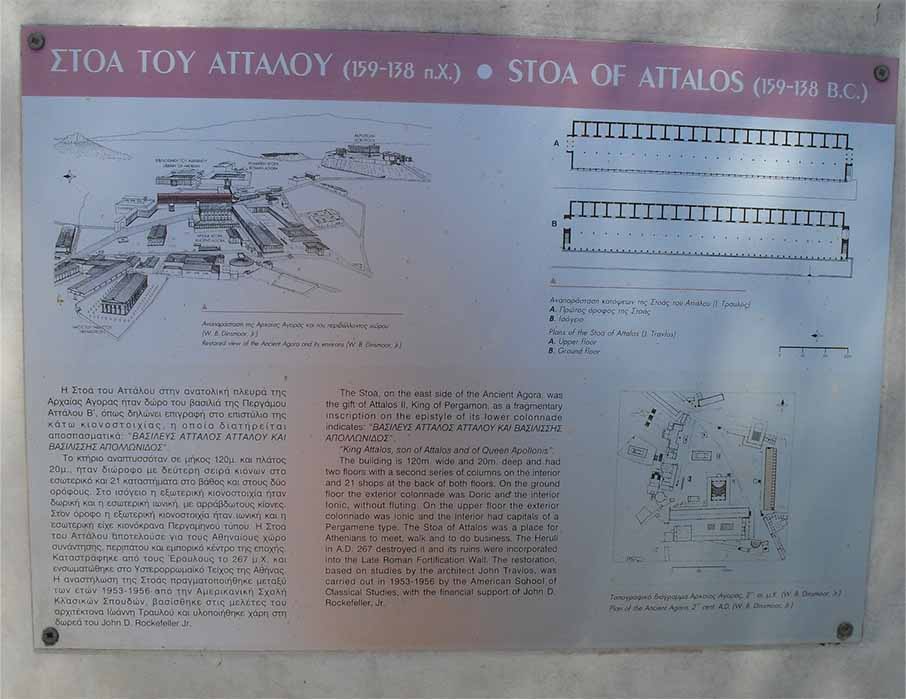
The Greek And Roman Agoras In Athens
The word ‘Agora’ in ancient Greek means ‘market’ but the agora in a city-state or polis was much more than just a commercial hub, it was also the socio-political center, the verus locus social media platform where politicians and city-fathers gathered to discuss affairs of the state, philosophers preached their knowledge and metics or resident foreigners, freedmen and slaves mingled with the citizens to generally exchange gossip. As the gods were very much part of day-to-day ancient Greek living, temples were conveniently accessible in the agora if one did not have the energy to ascend the Rock of Acropolis, looming over the Athenian Agora. The agora was transversed by the Sacred Way, that ran from the Acropolis in the north to the main city gate, the Dipylon. It was part of the sacred Panathenaic Way, the route for the procession of the festival of Athena, held every four years. Around the ancient Agora, the district of the Plaka of Athens developed over centuries, capturing the hustle and bustle of trade, bargaining and flea markets.

Plan of the Agora of Athens circa fifth century BC. (Public Domain)
The Layout of the Agora (circa fifth century)
1) The Stoa of Attalos and under its north end lay the foundations of the demolished Square Peristyle, which was probably used as a courthouse; 2) the Mint, used for Athens's bronze coinage, destroyed in the first century; 3) the Fountain House, 4) the South Stoa I; 5) the Aiakeion, dedicated to the Aeginan hero Aiakos; 6) The Strategeion, dedicated to the hero Strategos, used as the assembly hall of Athens' ten generals or strategoi; 7) Stone benches of Agora Hill or Kolonos Agoraios; 8) the Tholos, also known as the Prytanikon or Prytaneion; 9) the Boundary stone, marking one entrance to the agora; 10) the Monument of the Eponymous Heroes, the namesakes of the Athenian democracy's ten tribes, chosen by the Pythia of Delphi; 11) the Metroon or the Old Bouleuterion, dedicated to Cybele in propitiation after the Plague of Pericles was attributed to the murder of one of her missionary priests; 12) New Bouleuterion.
13) Hephaistion, the Temple of Hephaestus and Athena Ergane; 14) the Temple of Apollo Patroos; 15) the Stoa of Zeus Eleutherios; 16) Altar of the Twelve Gods, sanctuary; 17) the Stoa Basileios, seat of the archon basileus; 18) the Temple of Aphrodite Urania; 19) The Stoa Poikile, depicting Athenian victories in paintings and captured arms; 20) A former mistaken location of the Painted Stoa assumed to be the Stoa of the Herms.

Plan of the Stoa of Attalos (Image: Courtesy Micki Pistorius)
The Stoas
Stoas were basically columned, covered walkways, framing the marketplace. In the Athens Agora they were elaborate, aligned with Doric and Ionic columns. These were ancient ‘malls’ where bona fide shoppers went to buy products from merchants, or crafts from artisans, but it was also frequented by Athenians who wanted ‘to be seen,’ strolling along the porticos. These were mostly the men, yet although Athenian citizen-wives were restricted to their dómos or homes, female merchants and female slaves on errands also frequented the agora. "As Euboulos says in Olbia, you will find everything sold together in the same place at Athens -- figs, summoners, bunches of grapes, turnips, pears, apples, witnesses, roses, medlars, haggis, honeycombs, chickpeas, lawsuits, puddings, myrtle, allotment machines, lambs, waterclocks, laws, indictments." (Athenaios 14. 640 BC)
The Stoa Poikile (19) originally called the Porch of Peisianax, (fifth century BC) was situated in the north of the agora, displaying the loot Athenians had acquired in their wars with other city states. It was also on this porch where Zeno taught Stoicism to his students. The inner walls were decorated by various frescoes – showcasing an openair art gallery of Athens’ victories. The Stoa was badly damaged and looted of valuable objects in 267 AD by the Herulians – a Germanic tribe – and the paintings were removed by the Romans in 396 AD.





